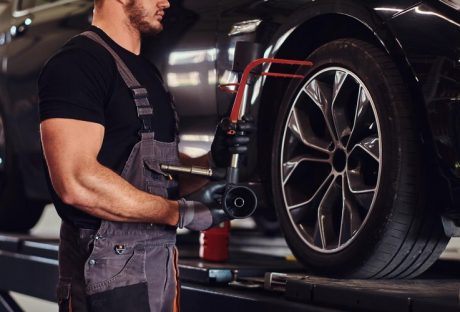Your motorhome is not only your gateway to holiday fun, but it is also a road vehicle. To keep yourself and your passengers, and others on the road safe, you need to have your motorhome serviced regularly. Regular servicing helps maintain safe operation as well as the longevity of your vehicle and keeps it in better condition so it retains its value for longer.
Here’s what you need to know about motorhome servicing and maintenance.
Where Can I Get My Motorhome Serviced?
A workshop specializing in motorhomes carries out the servicing. Servicing can often be arranged through the dealership where you purchased your motorhome, and this is usually the most efficient way to get a professional and reliable service. Make sure you carry out the service at the times and mileages recommended by the motorhome manufacturer. In addition to the chassis and mechanical checks, you need to service the living area, which is often called a habitation check. This should also be carried out by a specialist workshop of the motorhome dealership.
During this service the engineer should check the heating systems, water supply, gas, and electric systems and the fixtures. They will also check for signs of damp or dangerous wear and tear. It is important to have a regular habitation check since this keeps the vehicle safe as well as making it more comfortable.
Don’t forget to book your service early as many workshops are busy during the spring months before the season starts.
What Can I Check at Home?
As well as the regular professional servicing and habitation checks, you can also keep your motorhome in top condition with maintenance checks. Set up a schedule to spring clean your vehicle on an annual basis; you give the van a thorough clean to remove any build-up of dirt and grime that could lead to deterioration over time.
Check the windows and doors for leaks or damaged seals. Damp inside the van can be a problem. If you notice any musty smell or any signs of mould, open all the windows and doors, remove the mould, and give the van an effective airing.
Check the water and power systems. Clean water tanks with recommended cleaners and sterilizers. Check the gas system so that everything remains properly connected and there is no damage to any fixtures. Look over the appliances to make sure everything works correctly. Open out the beds and air any soft furnishings.
Look at the oil and coolant levels and check the battery of the motorhome. If you don’t use your vehicle over the winter, keep the battery charged by turning on the engine or running the van every six weeks or so. Start the vehicle to check the wiper blade work and that the blades have not perished.
You can also check, before you start your first trip of the season, that your paperwork is in order and you have the correct MOT certificate and evidence of regular servicing. Make sure your breakdown cover is up to date and you have the correct insurance cover. Once you have completed all these checks, you’ll enjoy a more relaxing and safer season in your motorhome.
Read also:






















